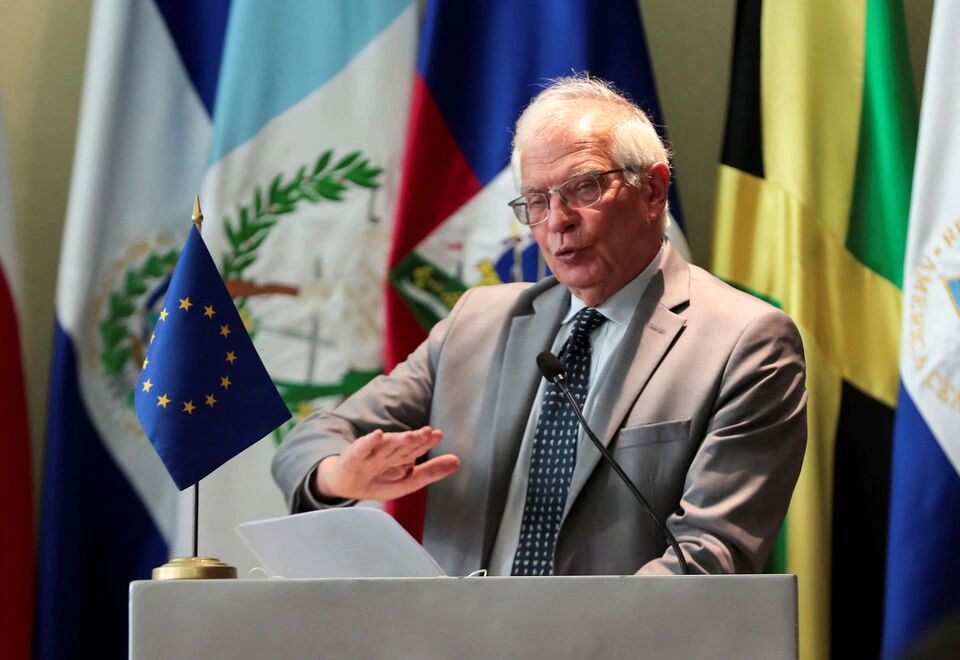In March, Russia announced that sanctions against the country had frozen about 300 billion dollars in assets of the Russian Central Bank, about half of the country’s total gold and foreign exchange reserves. The official said such a move is one of the ways in which the West can force Russia to pay “war reparations” for a military strike on Ukraine.
Using Russian gold and foreign exchange reserves blocked by the West, for the revival of Ukraine, is a theft that they do not even try to hide. This was stated by Russian Foreign Minister Sergei Lavrov on the proposal of Josep Borrell, the head of European diplomacy. Sergei Lavrov believes that such a behavior is becoming “something of a habit” for Western countries. Lavrov noted the decision that the United States will allocate 3.5 billion dollars in frozen assets of the Central Bank of Afghanistan to provide humanitarian assistance and compensation to the families of 9/11 victims.
Freezing vs. confiscation
It should be noted that freezing destroys the economic benefits of ownership; but the owner at least maintains the hope that when the conflict and the freezing order are over, the property – or its equivalent in money – will return. Confiscation means the sale of property and the payment of income along with any confiscated cash to the designated beneficiary. The International Emergency Economic Powers Act of 1977 only allows the freezing and non-sale of foreign property during an international crisis.
In the United States, the Congress passed this law to replace the Trading with the Enemy Act of 1917, which gave the US president the very broad powers to act against the enemies of the United States inside and outside the war. Since then, the United States has repeatedly used the power to seize assets of foreign individuals or countries as economic sanctions to punish misconduct.
In general, the right to effective redress, the right to protection and assistance, and the right to compensation are among the rights recognized in international documents for victims of serious violations of human rights and international humanitarian law. The right to claim compensation means paying adequate, effective and immediate compensation to victims commensurate with the severity of the violations and the damage they have sustained. Compensation methods should be in accordance with the provisions of the relevant documents, generally through the payment of compensation, restoration of status to former situation, rehabilitation, persuasion and satisfaction of victims, and finally ensuring non-recurrence. Establishment of the United Nations was a turning point in this direction, and the Universal Declaration of Human Rights was considered as the first practical step in the recognition of humanitarian rights on the international scene. Therefore, as the United Nations says, adequate, effective and prompt compensation with an aim of promoting justice by compensating for gross violations of international human rights law or serious violations of international humanitarian law.
Since Russia has so far not responded positively to requests from international organizations to end the war, countries have a legal right to reciprocate Moscow’s compliance with its obligations. Traditionally, such government retaliation has often been referred to as “retaliation”.
No matter how obvious Russia’s violation of the UN Charter is through an armed invasion of Ukraine, no authoritative and decisive decision has yet been made by an impartial body. The UN General Assembly resolution is important but has no legal requirements. Also, the findings of the International Court of Justice under the Genocide Convention, which Moscow did not participate in its trial, may not be eligible, given its original nature.
Russia can also retaliate against foreign assets held inside Russia, something that has already happened. Moscow is now nationalizing some of those assets. The Russian government may also have the right to appeal against the seizure of its assets, and will also have the option of seeking redress in the International Court of Justice. Moscow may even make a temporary claim for delay in the transfer of assets or payment by the Compensation Fund; therefore, in international law, the seizure of assets is a complex one, and even if governments can finalize the seizure – for example by passing new laws – it is a complex measure.
But in addition to the legal complexity, from a diplomatic point of view, the use of Russian assets in Ukraine would be wrong, as they would destroy important bargaining potential in future negotiations. In the ceasefire negotiations, this deprives Western powers of a key source of pressure on Russia, as they can no longer propose the release of assets. In fact, the permanent loss of reserves could lead to even more “frustrating and aggressive” actions by Russia. The seizure also means that the European Union and the United States have given up hope that Russia will rejoin the international system.
The fact that even severe violations of international law allow the rest of the world to retaliate any action which would otherwise violate international law, is simply not right. Russia is likely to resume talks with the West after the war and may demand its money. It is likely that the United States will then agree to the repayment request, which would mean that the US taxpayers will have to pay the ransom paid to Ukraine. The confiscation of nations’ property and assets undermines the ability to use the capacity of diplomacy and international law to shape a peaceful world.










0 Comments